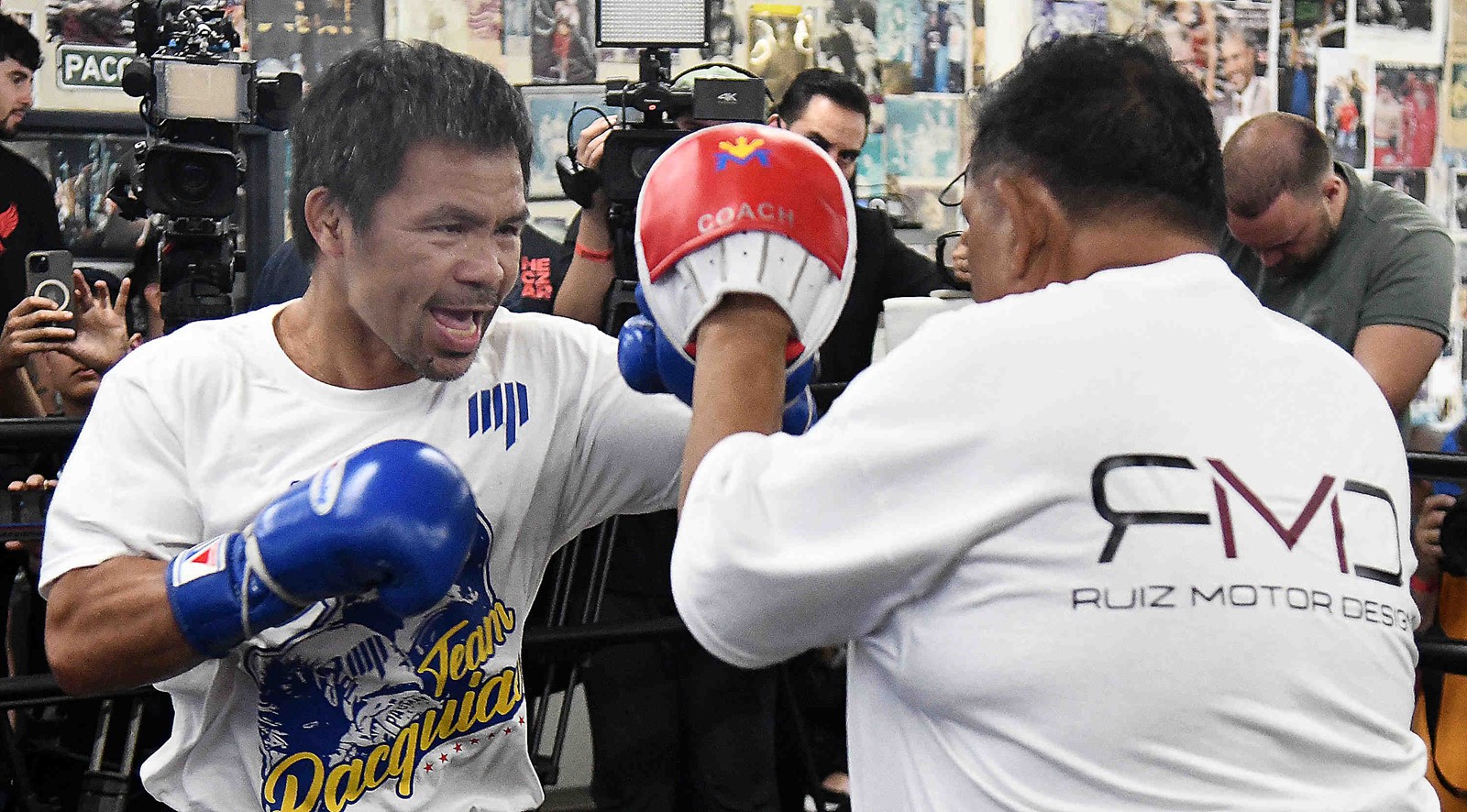
HOLLYWOOD — Freddie Roach learned that Manny Pacquiao planned to come out of retirement like the rest of us. So in May, when ESPN reported Pacquiao was ending his four-year break from boxing to challenge WBC welterweight champion Mario Barrios on Saturday at the MGM Grand in Las Vegas, the 65-year-old trainer found himself riding an emotional roller coaster.
Roach remembered the good times and smiled at the thought of helping his guy add to an already legendary résumé by becoming the only boxer to win a world title as a Hall of Famer.
“But then part of me started thinking about maybe the negative side,” Roach recalled in late June. “Your mind wanders back and forth when you’re sleeping. Which one do you want? Do you want him to quit? At one point, I wanted to call him up and ask him and his wife to make the right decision and just retire. And then a couple hours later, I wanted to call them up and say, ‘Yeah, let’s make it happen.’
“I usually don’t let that get to me, and I usually go with the right decision. Because there is a wrong and a right decision. You don’t want one of your fighters to get hurt.”
The last time Roach worked Pacquiao’s corner, the inseparable duo lost on points following a flat-footed night in 2021 against Cuban Yordenis Ugás. That 42-year-old version of Pacquiao, who needed stitches for more than one cut on his face, bore little resemblance to the buzzsaw that won belts across eight divisions.
Among prizefighting’s biggest draws the past two decades with Roach at his side, Pacquiao (62-8-2) essentially experienced everything the sport could offer when he opted to retire and launched an ultimately unsuccessful Philippine presidential campaign in 2022.
However, Pacquiao’s recent decision to lace up the gloves again set the stage for something new: a rite of passage great fighters often come to experience despite intending to walk away.
“It is really hard to give up your passion,” Pacquiao said. “After four years, I realized that it’s good for my body to rest. And I can still feel the fire in my heart to push my limits, to continue my career.”
Roach understands that universal truths about fighters, having been one himself, apply to pugs and superstars alike. Rare are those with enough awareness to recognize the proper moment to step away and the willingness to follow through.
Whatever early misgivings the 2012 Boxing Hall of Fame inductee had about “Pac Man” walking a perilous new path to the ring were put to bed when the two spoke. Roach may not have had input before reading headlines about Pacquiao’s return in the spring, but he wasn’t going to get the band back together without satisfying his concerns.
“I would never put a fighter back in the ring when he’s not prepared,” Roach said. “I would never do that.”
Pacquiao informed Roach that he was running twice a day, he wanted to fight for the right reasons, and he had the requisite hunger to do what was required to have his hand raised.
“I don’t think it’s ‘turn back the clock,’” Roach said. “He just misses what he had. He wants it back.”
Reconnecting with Pacquiao was obviously wonderful, but Roach’s initial hesitation also extended to himself.
Was the trainer, who continues to work with a crop of up-and-comers, ready to run a training camp and properly prepare Pacquiao rather than falling into a trap of some pantomime show mimicking the days when they were at the top of their game?
Enduring Parkinson’s disease for more than half his life, Roach pondered if he could fully offer Pacquiao what he had to have in mind, body and spirit to navigate another 12-round championship bout against an opponent in his prime.


 PREVIOUS ARTICLE
PREVIOUS ARTICLE
